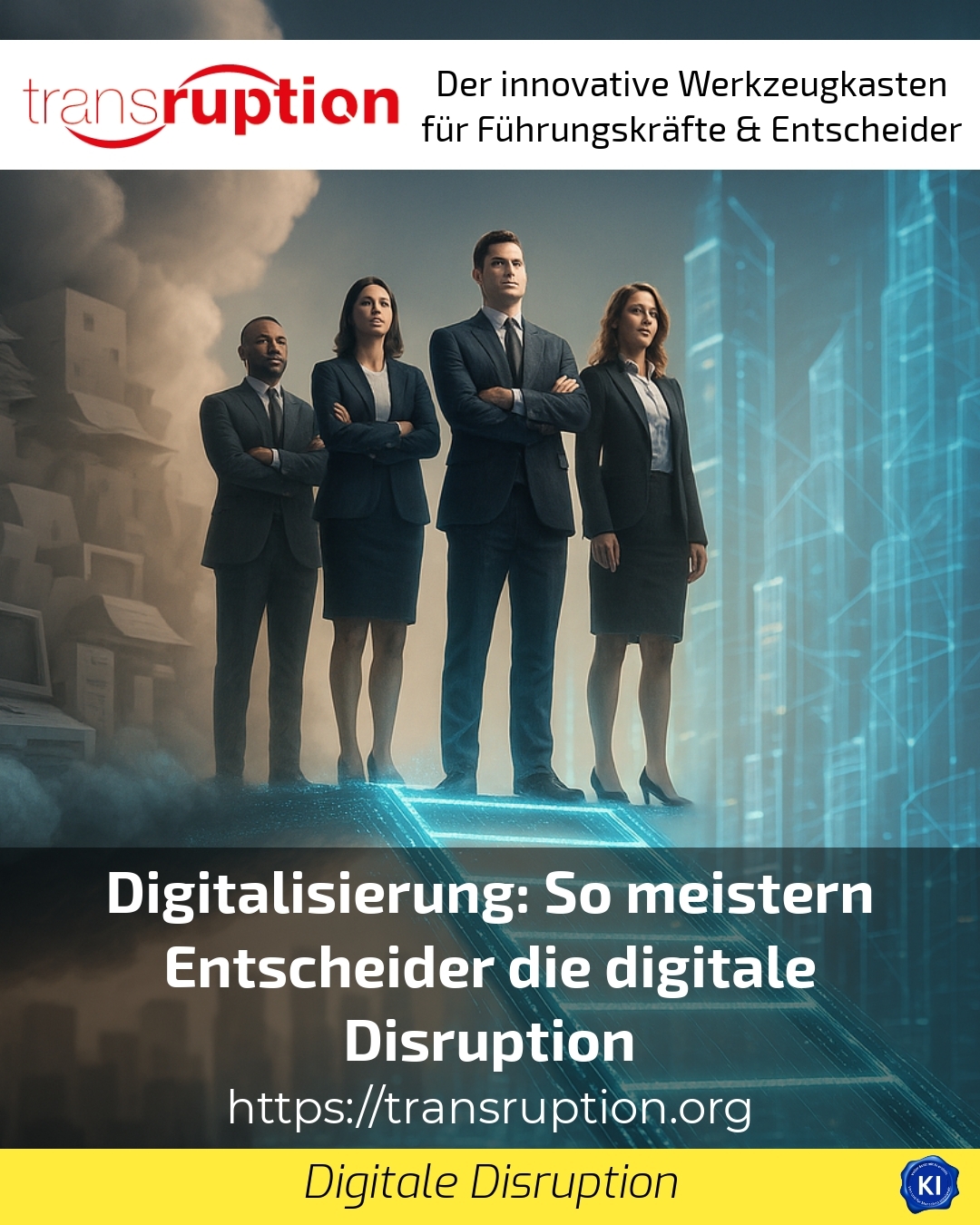Digital transformation as a challenge for decision-makers
Digitalisation** presents companies with complex challenges. Many decision-makers are looking for ways to not only cope with digital disruption, but to utilise it for their company. The creation of a holistic strategy plays a central role in this. It is no longer about individual digital projects, but about a sustainable alignment of business processes, corporate culture and technology.
Clear goals and a holistic strategy for digitalisation
Decision-makers first define clear goals; the digital transformation should be strategically embedded. This includes a thorough analysis of the current state of the IT infrastructure and the digital competences in the company. Only with a comprehensive understanding can needs be recognised and opportunities identified. The formulation of these goals forms the foundation of every **digitalisation**.
It is then advisable to set up an interdisciplinary team that can coordinate the change. This group supports the implementation and ensures the transfer of knowledge between the specialist areas.
BEST PRACTICE at company XYZ (name changed due to NDA contract) A transformation team with members from IT, sales and production was formed at a medium-sized manufacturing company. This team used agile methods to digitally map internal processes and thus save resources. This measurably improved the efficiency of production and simultaneously increased responsiveness to customer requests.
Technological basis and agile methods complement each other
The technological architecture must be open, flexible and secure in order to integrate new technologies such as artificial intelligence, big data and IoT. At the same time, the development of a digital culture is essential. Employee training and agile working methods promote the company's adaptability and prepare it for constant change. Here, **digitalisation** can only succeed through the interaction of technology and people.
BEST PRACTICE at ABC (name changed due to NDA contract) A retail company introduced digital skills training and implemented agile teams in customer service. This enabled them to introduce AI-supported chatbots, relieve employees of routine questions and thus increase customer satisfaction.
Pilot projects as the key to learning
Start small pilot projects to test hypotheses on digitalisation and quickly gain insights. The risk remains low and mistakes can be corrected quickly. Functioning solutions should then be scaled throughout the entire company. In this way, digital disruption can be actively shaped without jeopardising operations.
BEST PRACTICE at DEF (name changed due to NDA contract) A digital platform for warehouse management was first trialled in one branch. Following successful operation, it was rolled out in other regions, supported by KPI-driven dashboards that provided real-time data.
Trends and technologies in the focus of digitalisation
Above all, the targeted use of advanced technologies brings advantages in **digitalisation**. AI, for example, automates routine processes and supports more complex decisions. Connectivity is improved with 5G, for example for IoT solutions in manufacturing or smart cities. Low-code and no-code platforms make it easier to develop new applications, even without extensive IT expertise.
Modern technologies are also changing the expectations of search engine optimisation (SEO) and marketing. Companies have to design content in such a way that it matches the search intentions of users and is also technically optimised.
Continuous monitoring and adaptation ensure success
Effective **digitalisation** requires ongoing monitoring of efficiency and flexible adaptation of the strategy. Methods such as OKR (Objectives and Key Results) help to make objectives measurable and evaluate the results. This ensures that digital initiatives are not only implemented but also have a lasting effect.
My analysis
Many decision-makers experience digital disruption as a challenge, but at the same time as an opportunity for realignment. They are focussing on strategic planning, agile implementation and technological innovations. It is important not only to rely on digital tools, but also to further develop the corporate culture. Clients often report that it is the combination of clear goals, pilot projects and targeted use of technology that helps to make complexity manageable.
Further links from the text above:
[1] Strategy for the digital transformation 2025
[3] Top trends in digitalisation 2025
[4] How artificial intelligence (AI) is changing SEO in e-commerce
For more information and if you have any questions, please contact Contact us or read more blog posts on the topic TRANSRUPTION here.















